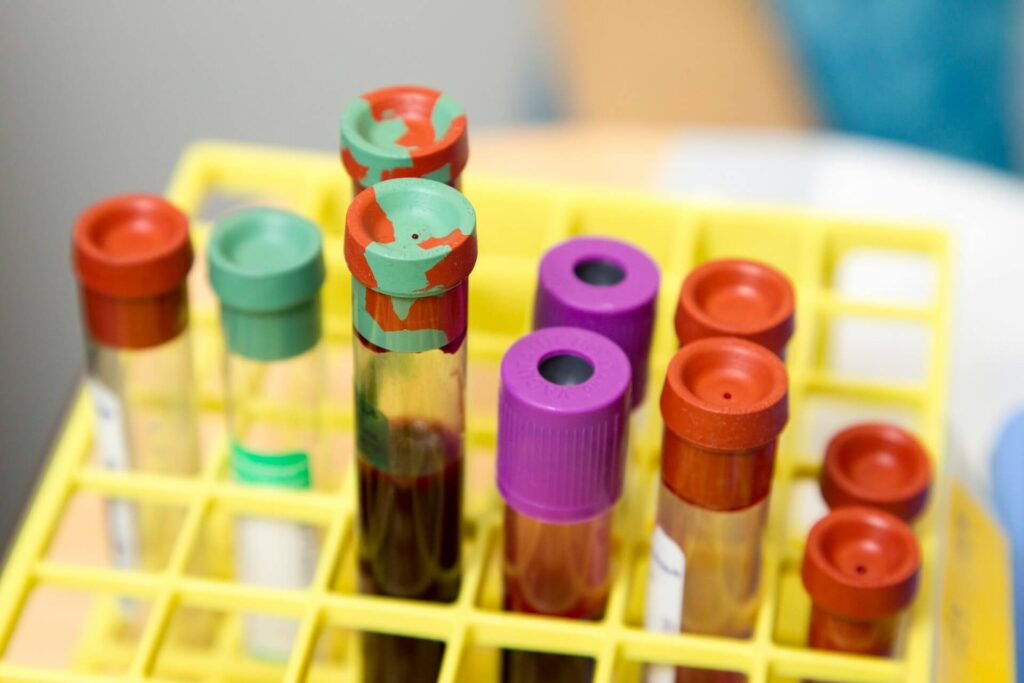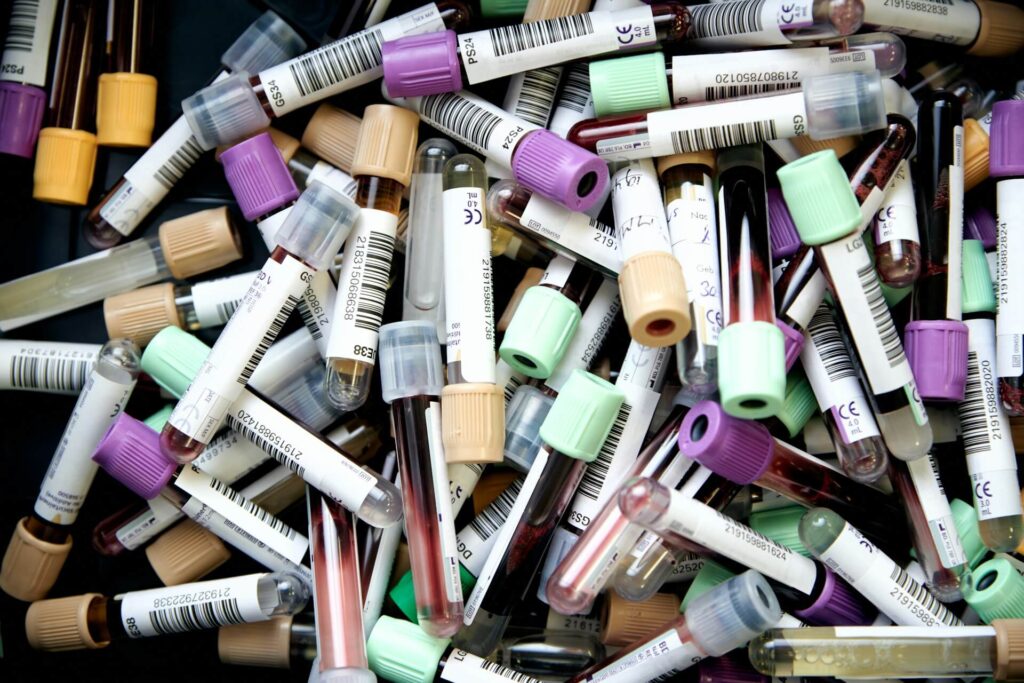You will typically need blood tests every 3 to 6 months while on Testosterone Replacement Therapy (TRT). However, this can vary based on individual health conditions and the specific protocols of your healthcare provider.
Initially, when you start TRT, your doctor may recommend more frequent testing to closely monitor your body’s response to the therapy. This initial phase might involve blood tests every 3 months.
The purpose of these tests is to check your low testosterone levels, hematocrit (to monitor for polycythemia), estradiol (to monitor estrogen levels), and PSA (prostate-specific antigen).
As your treatment progresses and your hormone levels stabilize, the frequency of blood testing may be reduced. For many individuals, once their testosterone levels have stabilized and are consistently within the desired range, their healthcare provider may extend the interval between tests to every 6 months.
It’s important to understand that TRT is a highly individualized treatment, and the monitoring requirements can vary significantly between individuals. Some factors that can influence the frequency of blood tests include age, baseline hormone levels, the presence of any underlying health conditions and how your body responds to the treatment.
Regular follow-ups and blood tests are necessary for adjusting the dose of testosterone as needed to ensure optimal levels are maintained and to monitor for any potential side effects or complications of therapy.
Your healthcare provider will guide you on the specific testing schedule that’s appropriate for your situation. Always follow their instructions and discuss any concerns you have about your treatment or the monitoring process.
What Initial Blood Tests Are Needed?

When you first start testosterone replacement therapy, more frequent blood tests are typically recommended. This initial phase of more frequent monitoring helps your healthcare provider assess your body’s response to the therapy, adjust dosages if necessary, and ensure that your testosterone levels are moving toward the desired range without causing unwanted side effects.
During the early stages of TRT, your doctor may schedule blood tests every 3 months. These tests often include:
Total and free testosterone levels: To ensure that the testosterone dosage is adequate to reach the desired levels within your body.
Hematocrit and hemoglobin levels: To monitor for polycythemia, a condition where the blood becomes too thick due to an increase in red blood cells, which can be a side effect of TRT.
PSA (Prostate-Specific Antigen): For men, to screen for prostate health and monitor any changes that might indicate prostate issues.
Estradiol: To assure that your testosterone is not causing an increase in your estrogen levels.
The goal of these frequent initial tests is to fine-tune your treatment plan to achieve the best possible balance of testosterone levels while minimizing side effects. Once your testosterone levels have stabilized and your doctor is satisfied with your response to treatment, the frequency of blood tests may decrease to every 6 months or as recommended by your healthcare provider.
It’s important to closely follow your healthcare provider’s recommendations for blood tests and any other monitoring they suggest. This personalized approach helps ensure that you get the most benefit from TRT while minimizing any potential risks.
How Do I Interpret My Blood Test Results?

Interpreting blood test results for TRT is important in managing and optimizing treatment. These tests provide valuable insights into how well the therapy is working and whether adjustments are needed to dosage or treatment plans. Understanding these results can seem daunting at first, but with some basic knowledge, patients can engage more effectively in their care discussions.
Total and Free Testosterone Levels
Total Testosterone measures the overall level of testosterone in the blood, including both bound and free testosterone. Normal ranges can vary by laboratory but generally fall between 300 to 1,000 ng/dL for adult males. For TRT, the goal is typically to maintain levels within the mid to upper range of normal, though the target can vary based on individual symptoms and health goals.
Estradiol
Estradiol, a form of estrogen, is also monitored during TRT because testosterone can be converted into estradiol. Maintaining balanced estradiol levels is important for bone health, mood regulation, and preventing excessive fat accumulation. Normal ranges for men are typically between 15 to 30 pg/mL.
Hematocrit
Hematocrit measures the proportion of red blood cells in the blood. TRT can increase red blood cell production, leading to polycythemia if levels become too high, which can cause you to feel sluggish/tired, cause headaches and increase the risk of blood clots. A normal range is about 38.3% to 48.6% for adult males. Levels significantly above this may require adjustments in therapy.
PSA
For men, Prostate-Specific Antigen (PSA) levels are checked to monitor prostate health. A significant increase in PSA levels may warrant further investigation.
Understanding the Numbers
While labs provide reference ranges, optimal levels can vary based on individual factors like age, health status, and symptoms. It’s important not to focus solely on achieving “normal” numbers but to consider how you feel clinically. Symptoms should guide treatment as much as blood test results.
Consulting with Healthcare Providers
Ultimately, interpreting blood test results should be done in collaboration with healthcare providers. They can provide context for the numbers, considering the whole clinical picture, including symptoms and health objectives. Regular discussions about blood test results are essential for adjusting TRT effectively and safely.
Being informed about what your blood test results mean empowers you to take an active role in your TRT journey. However, always rely on your healthcare provider to make the final interpretations and treatment decisions.

Ashlee is the Medical Director at Evolve Wellness and Health in Englewood, Colorado. She obtained her Master of Science in Nursing in 2006 from Colorado State University-Pueblo, and is board-certified through the American Nurses Credentialing Center as an Acute Care Nurse Practitioner. She has practiced in the field of hormone replacement therapy (both male and female) and medical weight loss since 2013.


